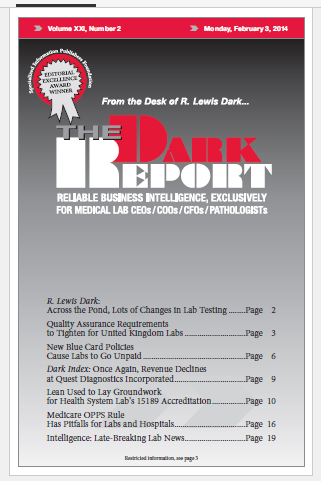CEO SUMMARY: On January 1, the new Medicare rule for requiring bundled or packaged reimbursement for certain services covered by the hospital Outpatient Prospective Payment System (OPPS) became effective. Just four days earlier (on December 27), Medicare officials issued instructions on how hospitals and laboratories should bill for these services. The new rules trigger serious […]
To access this post, you must purchase The Dark Report.


